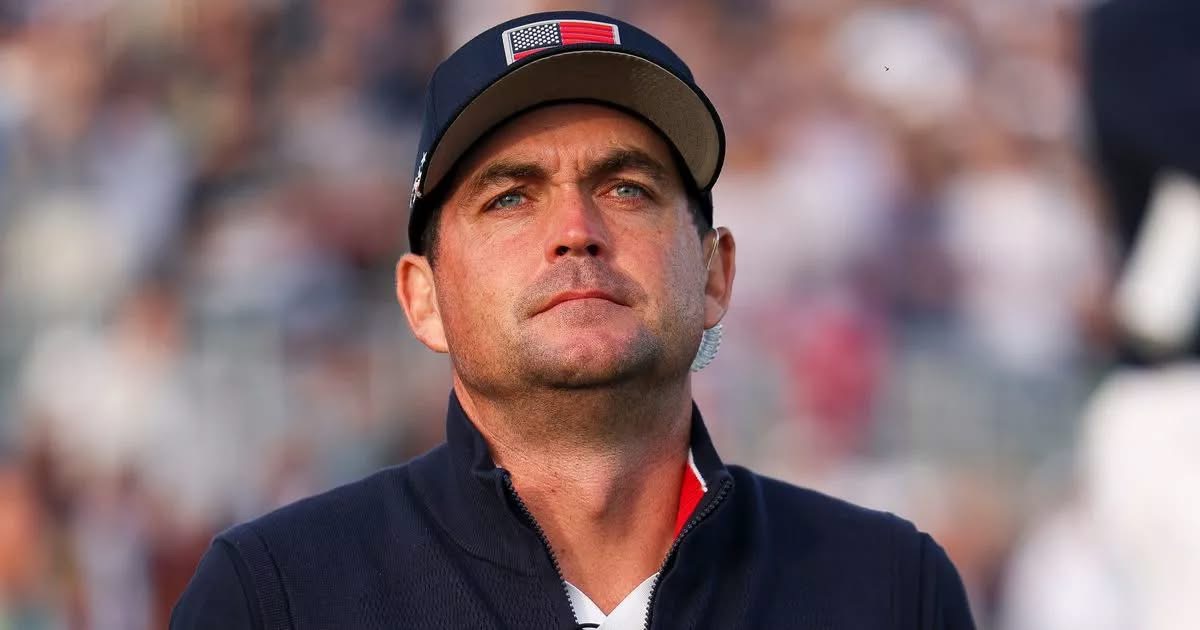The fallout from the Ryder Cup’s rarely used envelope rule has taken another twist, as American golfer Keegan Bradley has publicly called for a rematch of the singles match he believes was compromised by the controversial provision.
The drama unfolded when Viktor Hovland’s late withdrawal due to a neck injury activated the Ryder Cup’s little-known rule, which allows each captain to name one player in a sealed envelope prior to the singles session. That name is used in the event an opponent cannot compete, ensuring neither side gains a walkover. This time, the unlucky player turned out to be Harris English, leaving him sidelined and his scheduled opponent without a contest.
Bradley, who has never been shy about voicing his passion for the Ryder Cup, argued that the rule denied both players and fans the battle they deserved to see. Speaking after the U.S. team’s matches concluded, he did not hold back.
“I think the envelope rule robbed us of a true Ryder Cup moment,” Bradley said. “Harris was playing great, and Viktor’s been a warrior all week. The fans deserved that match. If Viktor couldn’t go, then let’s figure out another way. Sitting a guy like Harris isn’t fair—to him, to us, or to the competition. I’d love to see a rematch, even just as an exhibition, because that’s a match everyone wanted.”
A Passionate Plea
Bradley’s suggestion of a rematch is unprecedented. Traditionally, once the envelope rule is invoked, the match is declared a “halved point” with no golf played. But Bradley insisted that flexibility should be built into Ryder Cup traditions.
“We live in an era where sports can adapt. Tennis has rule changes, baseball has new formats, football brings in technology. Why can’t golf adjust to keep the best product on the course? If that means scheduling a rematch later—even outside the Ryder Cup—it’s worth exploring,” he said.
Divided Opinions
Bradley’s comments sparked debate among analysts and fans. Some agree that the rule feels outdated, leaving players and spectators short-changed. Others argue that tinkering with long-standing Ryder Cup traditions could create more problems than it solves.
Former Ryder Cup captain Paul McGinley weighed in on television, saying: “The envelope rule exists for fairness. If one side loses a player, you can’t give the other team a free point. It’s rare, yes, and unfortunate for Harris, but that’s part of the event’s history. I respect Keegan’s passion, but I don’t see a rematch fitting into the structure.”
English Left “Gutted”
Harris English himself expressed disappointment but stopped short of calling for a rematch. “Of course I wanted to play,” he said. “You prepare all week for that singles moment. To be taken out by a technical rule is tough. But it’s part of the Ryder Cup, and I have to respect it—even if it hurts.”
A Rule Under Review?
Bradley’s demand, however unlikely to be granted, may add pressure on Ryder Cup officials to revisit the envelope procedure. Suggestions have included introducing substitute players, reshuffling singles pairings, or allowing reserve matches to be played at a later date.
The PGA of America has not issued a formal response, but insiders suggest the matter could be raised in the post-event debrief.
Bradley’s Competitive Fire Burns Bright
For Bradley, his outcry was less about rulebooks and more about preserving the spirit of the Ryder Cup. Known for wearing his heart on his sleeve, his passion embodies the intensity of the biennial showdown.
“I love this event more than anything,” Bradley said. “All I want is to see the best players battling it out, with nothing standing in the way. That’s what the Ryder Cup is all about.”
Whether his plea for a rematch gains traction remains to be seen. But one thing is certain—this year’s Ryder Cup envelope drama has reignited a debate about whether tradition should bend to ensure the competition remains fair, modern, and thrilling.









